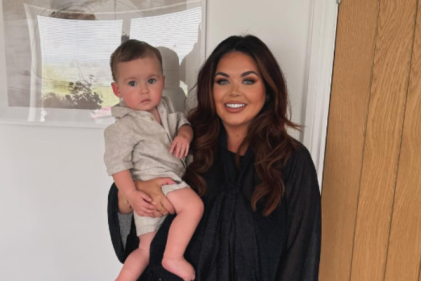Food allergies are common among toddlers, as well as older children and adults. Food allergies can appear suddenly, at any time.
The symptoms of food allergy can be mild, or they can be severe, and even life threatening. Hives, a runny nose, vomiting, or difficulty breathing can all be the result of your child eating a foodstuff that he is allergic to. In very severe cases, your child could go into anaphylactic shock, which is life threatening, and requires immediate emergency medical care.
The reason for these reactions is that your body somehow decides that a specific food, or an ingredient in that food, is an ‘invader.’ In order to protect your body from the perceived threat, your body will release antibodies and substances like histamine, in order to fight off the threat. Instead of helping, however, this reaction can be fatal.
Allergies can be hereditary, so it’s possible, if you have a particular food allergy that your child or children will too. They may also be able to tolerate the food the first few times they try it, or with other ingredients, but have an allergic reaction later on.
Your child may be allergic to any foodstuff; however, there are eight foods that account for as many as 90 percent of food allergies. These are milk, eggs, peanuts, tree nuts, soy, wheat, fish, and shellfish.
If your child shows any signs of a serious allergic reaction after eating a particular food – such as difficulty breathing or severe swelling, take him or her to the hospital immediately. If there are signs of a milder form of allergy, have your child tested by the paediatrician.
Food allergies can be deadly, so don’t take any chances, and if your child is diagnosed with a particular allergy, make sure that you avoid any foods that may contain even trace amounts of that food.
The symptoms of food allergy can be mild, or they can be severe, and even life threatening. Hives, a runny nose, vomiting, or difficulty breathing can all be the result of your child eating a foodstuff that he is allergic to. In very severe cases, your child could go into anaphylactic shock, which is life threatening, and requires immediate emergency medical care.
The reason for these reactions is that your body somehow decides that a specific food, or an ingredient in that food, is an ‘invader.’ In order to protect your body from the perceived threat, your body will release antibodies and substances like histamine, in order to fight off the threat. Instead of helping, however, this reaction can be fatal.
Allergies can be hereditary, so it’s possible, if you have a particular food allergy that your child or children will too. They may also be able to tolerate the food the first few times they try it, or with other ingredients, but have an allergic reaction later on.
Your child may be allergic to any foodstuff; however, there are eight foods that account for as many as 90 percent of food allergies. These are milk, eggs, peanuts, tree nuts, soy, wheat, fish, and shellfish.
If your child shows any signs of a serious allergic reaction after eating a particular food – such as difficulty breathing or severe swelling, take him or her to the hospital immediately. If there are signs of a milder form of allergy, have your child tested by the paediatrician.
Food allergies can be deadly, so don’t take any chances, and if your child is diagnosed with a particular allergy, make sure that you avoid any foods that may contain even trace amounts of that food.







